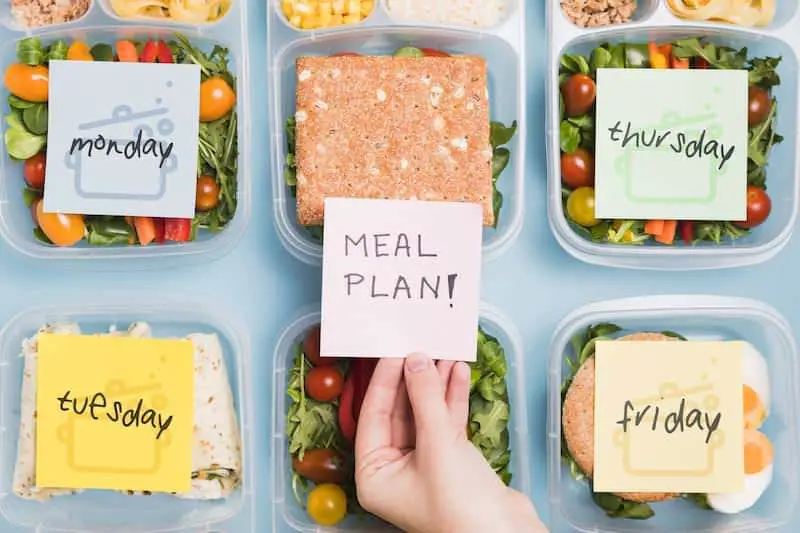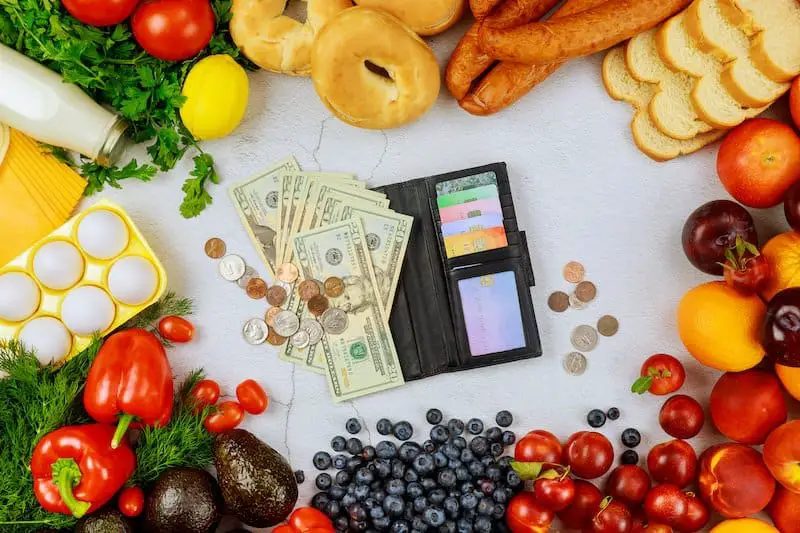If there is an expense that I always do not regret splurging on, it is food. Food is one of the necessities of humans. Because of the different nutrients it provides, we become active, healthy, and living the life.
Undeniably, it is one of our first choices of treats too! How about that perfectly blended strawberry shake in the middle of a deadline, trying out a new restaurant because it is payday, or rib steak dinner with colleagues because T.G.I.F? Sharing food with our families and friends is one of our pleasures in life.
There are some of us though, who have a one-day millionaire syndrome. Especially being a young adult, it is undeniably tempting to overspend, especially when you just got paid. But constant impulsive spending will soon lead you to have nothing. Then you might end up borrowing money from friends, overly using your credit card, or even skipping meals. So, should we set up a budget for food? YES!
How much of our income is spent on food?

According to the data by the U.S. Department of Agriculture, “In 2019, Americans spent an average of 9.5 percent of their disposable personal incomes on food – divided between food at home (4.9 percent) and food away from home (4.6 percent). Food away from home accounted for 54.8 of total food expenditures, up from 50.1 percent in 2009.”
According to an annual consumer expenditure survey by the U.S. Department of Labor, “Spending varies for households of differing size, income, and other characteristics.”
This information points out that there’s no right or wrong budget for food, but a case-by-case basis.
Basically, our budget depends on our income and our family’s size. The more members of a household, the higher the budget it requires. If there are dietary restrictions or preferences on one of the members, or the whole family, the budget will also be affected. But, there’s always hope! There are means on how to save money without compromising health and good quality food.
What are some ways to save money on food?

Make use of coupons
We can acquire coupons from various sources such as the Sunday newspaper, from grocery stores, and straight from manufacturers. These coupons are equivalent to cash, and if you know how to use them wisely, you can maximize your savings.
Holding on to those coupons when a near sale is coming, or having multiple copies of one coupon for a single transaction will surely make a great deal. I know we get all excited about the free money, but remember, we must still do the math.
Plan your meals (meal prep!)
We can always randomly plan our meals, especially when we crave something. But it would be much better if we can make use of items on sale at our local grocery and come up with meals where we can incorporate them, right? If you crave a delish meal, and chicken thighs are on sale, isn’t it a perfect time to have chicken stroganoff for dinner?
You can also consider products that are in season since they are best to purchase, especially when prices drop due to their abundance.
Make a grocery list

Next, list all ingredients needed for the decided meals. Shopping for the right and complete ingredients for our planned meals will not divert our attention to dining out or ordering food from restaurants.
Wandering the aisles is okay (so you can have options), but remember to focus on the needed items as this will force focus and discipline, keeping us away from shooting extras to our carts.
Eat before you go
Feeling hungry while grocery shopping will make us feel that we have to feed ourselves happily. Instead of visiting the meat section, we rush first to the chocolates and the chips as our mood boosters.
We must always note that, there are affordable and healthier finds if we will take time and think twice.
Choose healthy meals
You may eat on a budget but it doesn’t have to be unhealthy. Avoid pre-packed food, pre-packaged and ready-to-eat meals but instead, choose the fresh and uncut ones. Besides the fact that, raw foods and veggies can save you some cash, they are the healthy ones too! Just wash your own veggies, slice your own fruits, and enjoy your healthy meals.
Shop at a more affordable store
If you haven’t gone to other grocery stores, now is the best time. Prices differ on some items and even it’s just a matter of a dollar, a dollar not spent is still a dollar saved.
Choose the store that offers the best quality at a reasonable price.
Bring your own lunch
Most of us who work find it difficult to bring lunches to work because of one main reason, and that is, we don’t have time to cook. Cooking takes time, yes, but it can save us a lot of money.
Besides, it will just take a couple of minutes to prepare a salad or a sandwich or even reheat leftovers. A famous quote reminds us that, “If there’s a will, there’s a way.”
How to stay on a food budget

After you consider all possible factors that can affect your monthly budget, you can make use of the experience and records for comparison.
Keeping a record will give you an idea of how much you spend on your budget. Do not throw away receipts from the grocery store, or those from your credit card bill, because they will help you come up with an accurate calculation that you can make use of in formulating the budget for the next few weeks.
Make sure to separate receipts for groceries and outside meals or deliveries. This way, you can keep track of the expenses and make the necessary adjustments.
From there, you can set a new weekly budget. Remember that it is a trial and error. What is important is that you set and budget and you stick to it. Making changes is necessary, so you can cut off on other expenses like entertainment or app subscriptions if your body calls for healthier options.
Conclusion
Food being a basic necessity is a fact and not an excuse for us to overspend. We must always go back to the basics – knowing the budget, identifying our expenses, spending for our needs, and saving for the future. Allotting a budget for our expenses like food is not self-deprivation.
This is just another way for us to be still with our goals while enjoying a healthy and sustainable lifestyle. You can still buy yourself some of your favorite items once in a while, but do not forget the healthy ones. Bon appetit!


